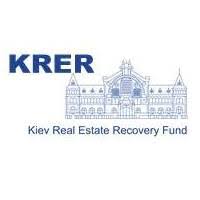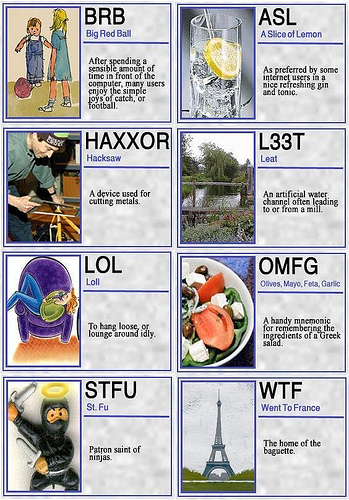
You must have certain qualifications and experience to be a Virginia Broker. It is necessary to complete a pre-license 60-hour class and pass the state broker test.
The real-estate industry is very lucrative. However, it can be complicated and difficult to break into. It is important to choose the best real-estate school for you in order to be able pass the Virginia Real Estate Broker Exam.
A real-estate broker license issued by the government allows you to work in real estate independently, without needing sponsorship or supervision from another person. You can also sell and manage property for others for a fee.
There are several ways to become a VA real estate broker, each with its own unique requirements. The first thing you need to do is complete a pre-license real estate course of 60 hours. You can complete this course in a classroom or online.

You will be required to pass an exam after completing your course. This final test is proctored. This exam is mandatory, so you should schedule an appointment with a proctor before your exam date.
You can study for the Virginia broker license exam by purchasing an exam prep package from a school. The packages are often accompanied by practice questions or simulated exams. There are also study guides, flashcards, and other tools to help you master the common topics.
The next step is to pass the state and national portions of the real estate license exam. The minimum score for each portion is 75 percent. If you fail any part of the exam, you'll have to pay a fee to take that portion again.
You can obtain a reciprocal Virginia license if you previously held a real estate licence in another State. It is necessary to pass both the state broker test and the continuing education course equivalents to Virginia requirements.
Additionally, you are required to include any misdemeanors committed, previous convictions or offenses on the application and have them verified by your local police department. Virginia requires that you submit your fingerprints for a criminal background check.

The Virginia Department of Professional and Occupational Regulation will review your application and issue you a real estate broker license. The DPOR will review your application and issue you your real estate broker license.
For a Virginia real-estate broker, you must complete 180 education hours. This includes a 45-hour course in real property brokerage, and three classes in other real estate fields. These courses are approved in Virginia and may be taken online or on a campus.
It can take from a few weeks to up to two years depending on how long you've been in the industry. Before applying for your real estate license, you must be prepared to work as a realtor full-time for at least three years.
FAQ
Is it cheaper to rent than to buy?
Renting is generally cheaper than buying a home. It's important to remember that you will need to cover additional costs such as utilities, repairs, maintenance, and insurance. The benefits of buying a house are not only obvious but also numerous. For instance, you will have more control over your living situation.
What are the downsides to a fixed-rate loan?
Fixed-rate loans have higher initial fees than adjustable-rate ones. Additionally, if you decide not to sell your home by the end of the term you could lose a substantial amount due to the difference between your sale price and the outstanding balance.
Should I use a broker to help me with my mortgage?
If you are looking for a competitive rate, consider using a mortgage broker. Brokers can negotiate deals for you with multiple lenders. Some brokers receive a commission from lenders. Before signing up, you should verify all fees associated with the broker.
Statistics
- It's possible to get approved for an FHA loan with a credit score as low as 580 and a down payment of 3.5% or a credit score as low as 500 and a 10% down payment.5 Specialty mortgage loans are loans that don't fit into the conventional or FHA loan categories. (investopedia.com)
- The FHA sets its desirable debt-to-income ratio at 43%. (fortunebuilders.com)
- This seems to be a more popular trend as the U.S. Census Bureau reports the homeownership rate was around 65% last year. (fortunebuilders.com)
- Based on your credit scores and other financial details, your lender offers you a 3.5% interest rate on loan. (investopedia.com)
- Over the past year, mortgage rates have hovered between 3.9 and 4.5 percent—a less significant increase. (fortunebuilders.com)
External Links
How To
How to Find an Apartment
Moving to a new place is only the beginning. This takes planning and research. This involves researching neighborhoods, looking at reviews and calling people. While there are many options, some methods are easier than others. Before renting an apartment, you should consider the following steps.
-
Online and offline data are both required for researching neighborhoods. Online resources include Yelp. Zillow. Trulia. Realtor.com. Other sources of information include local newspapers, landlords, agents in real estate, friends, neighbors and social media.
-
You can read reviews about the neighborhood you'd like to live. Yelp and TripAdvisor review houses. Amazon and Amazon also have detailed reviews. You can also check out the local library and read articles in local newspapers.
-
Make phone calls to get additional information about the area and talk to people who have lived there. Ask them what the best and worst things about the area. Ask them if they have any recommendations on good places to live.
-
Check out the rent prices for the areas that interest you. Consider renting somewhere that is less expensive if food is your main concern. However, if you intend to spend a lot of money on entertainment then it might be worth considering living in a more costly location.
-
Find out more information about the apartment building you want to live in. Is it large? How much does it cost? Is the facility pet-friendly? What amenities do they offer? Do you need parking, or can you park nearby? Are there any special rules that apply to tenants?